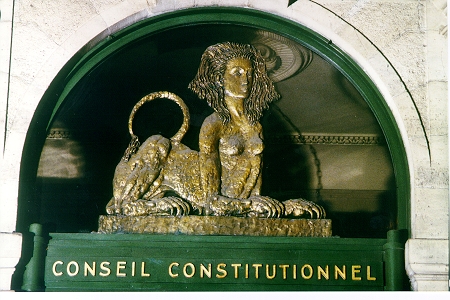French Constitutional Council Upholds Gay Marriage Bill
 The French Constitutional Council has rejected the challenge against the bill adopted by the French Parliament opening marriage to same sex couples. It will therefore become law in the coming days.
The French Constitutional Council has rejected the challenge against the bill adopted by the French Parliament opening marriage to same sex couples. It will therefore become law in the coming days.
The bill included French traditional choice of law rules providing for the application of the law of the nationality of each spouse to the substantive validity of marriage (Civil Code, Art. 202-1, para. 1), and the application of the law of the place of celebration to its formal validity (Civil Code, Art. 202-2).
Requirements as to the sex of the spouses being substantive in character, the consequence of these rules would have been that only nationals from one of the 14 jurisdictions allowing gay marriage could have married in France.
This is the reason why the bill also included a more innovative rule providing that two gay people would still be allowed to marry if the national law or the law of the residence of one of them only allowed gay marriage (Civil Code, Art. 202-1, para. 2).
The rule would enable a French national to marry a national from any country in France. This would also apply to French residents, probably to avoid discrimination on the ground of nationality, especially between EU nationals.
Code Civil
Chapitre IV bis Des règles de conflit de lois
Art. 202-1. – Les qualités et conditions requises pour pouvoir contracter mariage sont régies, pour chacun des époux, par sa loi personnelle.
Toutefois, deux personnes de même sexe peuvent contracter mariage lorsque, pour au moins l’une d’elles, soit sa loi personnelle, soit la loi de l’État sur le territoire duquel elle a son domicile ou sa résidence le permet.
Art. 202-2. – Le mariage est valablement célébré s’il l’a été conformément aux formalités prévues par la loi de l’Etat sur le territoire duquel la célébration a eu lieu.
The constitutionality of the provision was challenged on the ground that it violated the principle of equality before the law, as Article 202-1, para. 2, only applies to, and protects, same sex marriage, and that a different rule thus applies to heterosexual marriages.
On May 17th, the Constitutional Council rejected the challenge by ruling that the French Parliament had treated differently people in different situations, and that there was therefore no violation of the equality principle.
29. Considérant, en premier lieu, que, par les dispositions du second alinéa de l’article 202-1 du code civil dans sa rédaction résultant du paragraphe II de l’article 1er de la loi déférée, le législateur a entendu introduire un dispositif spécifique selon lequel « deux personnes de même sexe peuvent contracter mariage lorsque, pour au moins l’une d’elles, soit sa loi personnelle, soit la loi de l’État sur le territoire duquel elle a son domicile ou sa résidence le permet » ; qu’il était loisible au législateur de permettre à deux personnes de même sexe de nationalité étrangère, dont la loi personnelle prohibe le mariage entre personnes de même sexe, de se marier en France dès lors que les autres conditions du mariage et notamment la condition de résidence sont remplies ; que le législateur, qui n’était pas tenu de retenir les mêmes règles pour les mariages contractés entre personnes de sexe différent, n’a pas traité différemment des personnes se trouvant dans des situations semblables ; que, par suite, le grief tiré de l’atteinte au principe d’égalité devant la loi doit être écarté ;
I thought that the rationale for allowing same sex marriage was to give the same rights to everybody, because there should be no difference between gay and heterosexual couples, but maybe I have missed something.



Art.202 refers to the personal law of one of the parties and thus expressly sets out the relevant private international law.
Sadly, the proposed Same Sex Bill for England & Wales does not seem to have any private international law provisions. Presumably, the existing PIL of England & Wales, thought probably to be the dual domicile theory would then apply to both mixed sex and same sex marriage. The consequences of this, do not yet seem to have been addressed or considered.